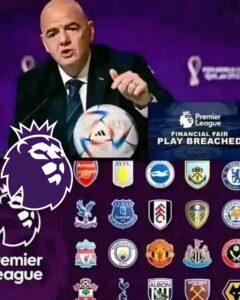In December, the much-anticipated announcement confirming the acquisition of the team by 71-year-old billionaire Sir Jim Ratcliffe arrived, culminating months of speculation. Ratcliffe, along with his INEOS Group, injected close to £1 billion to secure a 27.7% stake in the team, with the potential for that stake to rise to nearly 30% through an additional investment of £238 million.
The INEOS Group’s ownership of Nice, a French football club currently occupying fifth place in Ligue 1 and poised for European football, adds another layer of complexity. UEFA has formally acknowledged that teams under the same ownership umbrella cannot participate in the same competition, heightening scrutiny.
A UEFA insider confirmed to SunSport that this regulation prohibits both Manchester United and Nice from competing in the same tournament, although they could potentially participate in different ones. Manchester United, under the management of Erik ten Hag, faces an uphill battle in the European qualification race, trailing behind Tottenham by six points and Aston Villa by nine.
Despite this, the FA Cup offers a glimmer of hope for European football aspirations. Should Manchester City clinch the league title, an extra league spot would open up, potentially benefiting Manchester United.

However, complications arise regarding European qualification due to the shared ownership with Nice. If both teams secure Europa League berths through their domestic leagues, precedence would favor Nice, relegating Manchester United to the Conference League.
Yet, a FA Cup victory would secure Manchester United a Conference League spot, potentially displacing Nice. In the event of both teams qualifying for the Champions League, the spot would go to the team with the superior domestic league standing.
Nonetheless, Manchester United holds an advantage due to England’s high ranking in UEFA’s coefficient, potentially tipping the scales in their favor, even if both teams finish domestically at the same position.